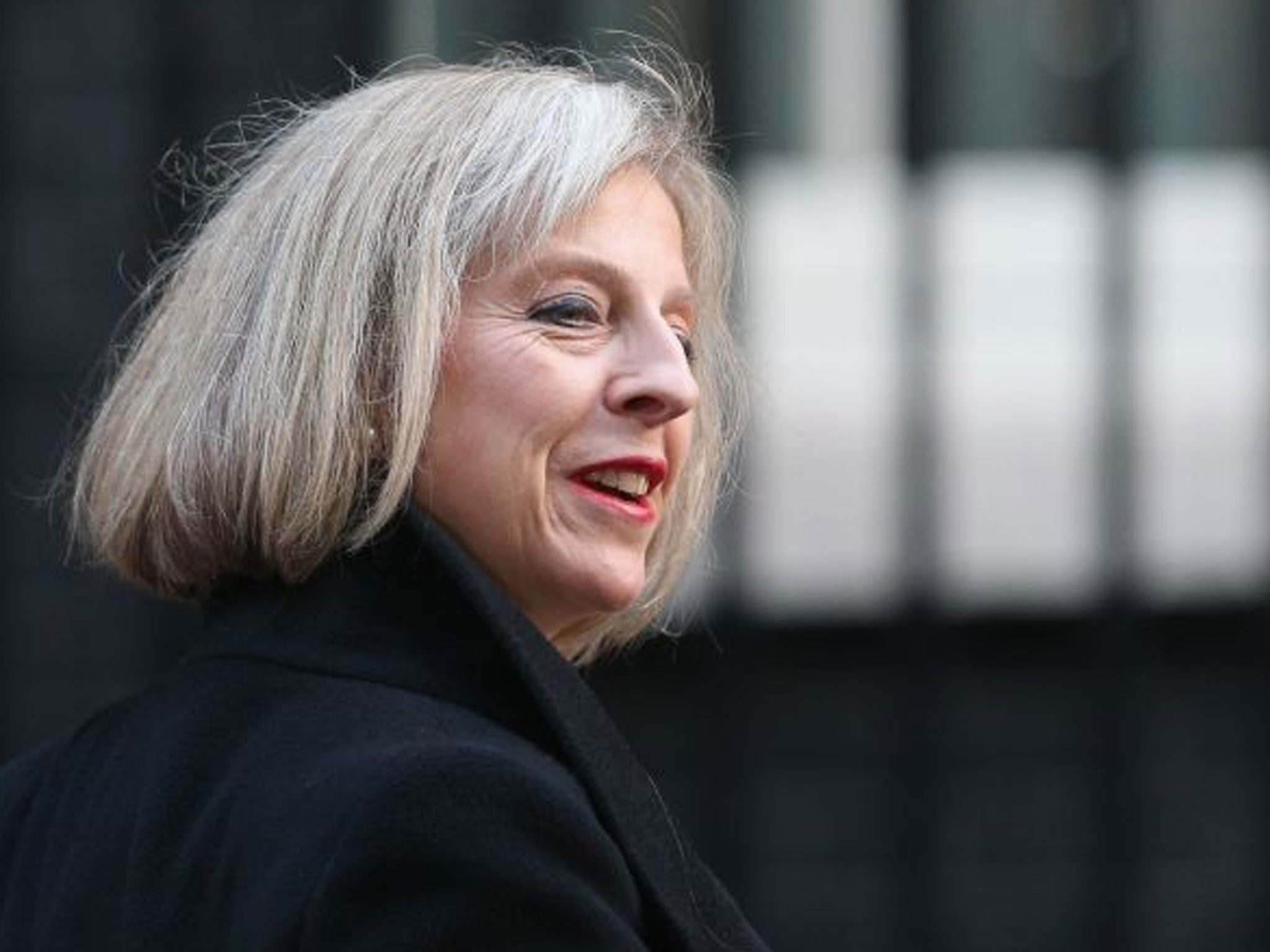Theresa May's speech leaves Tories in no doubt – she's after the top job
Home Secretary pledges loyalty to Cameron but urges party to empower all the people, not just elites

Theresa May cemented her position as a Conservative leader-in-waiting yesterday when she called on her party to win the next election by promising to govern for the whole country, not just for vested interests.
After a week of swirling rumours that she was plotting a challenge to David Cameron, the Home Secretary used a speech to Conservative Party activists to set out a wide-ranging policy framework that she claimed would carry the Tories back into Downing Street in 2015.
Mrs May was careful to include a number of passages underlining her commitment to the Prime Minister's leadership, stressing that "getting a majority Conservative government, led by David Cameron, is vital in 2015".
But her speech, to a conference in London on what the Tories must do to win the next election, ranged far from her departmental brief and across the full policy platform, and it underlined her capacity to be a credible leadership contender in future. The speech also included a series of references to "blue-collar" issues including job security, immigration and fuel duty.
She also detailed a strategy based around the "three pillars of conservatism" – security, freedom and opportunity – which she claimed would help the party to victory.
"We're at our best when we don't try to re-create the past but adapt our policies to the needs of the day – while continuing to root those policies in our values," Mrs May told the Victory 2015 conference staged by the conservativehome website. "But to win, we must remember our attributes as a party when we're at our best and our strongest. We're at our strongest when anyone and everyone can feel the Conservative Party is for them – when we're the party for all. We win when we stand for the values of the British people – respect, fair play, generosity, enterprise, aspiration."
Significantly, Mrs May insisted that the Tories must govern for the whole country in an attempt to counter claims that the current leadership is too "elitist". She said: "So we have a good record and we have the right team. But those advantages alone will not be enough. We have to become the party that is tireless in confronting vested interests. The party that takes power from the elites and gives it to the people. The party not just of those who have already made it, but the home of those who want to work hard and get on in life."
The enthusiastic reception for Mrs May's speech underlined concerns over the direction the Tory party is taking, particularly after the Eastleigh by-election defeat. Mr Cameron has come under mounting pressure from all sides over his policies on issues from gay marriage to the EU.
Amid the fears over falling confidence in the leadership, Mrs May has emerged as a credible alternative to Mr Cameron – and his main contender, Boris Johnson – if he is ever forced out of office. She has carved out a reputation as a robust and dependable Home Secretary since the coalition took office, but her latest speech, the most wide ranging she has given, illustrates that she has a broader vision for the future of the party.
Her address was punctuated by a relieved round of applause for the confirmation of the pledge that the next Conservative government would abolish the Human Rights Act – and possibly leave the European Human Rights Convention altogether – a hugely popular move throughout the party. Mrs May also earned further applause when she welcomed the "re-detention" of the radical preacher Abu Qatada.
She said: "We need to stop human rights legislation interfering with our ability to fight crime and control immigration. That's why, as our last manifesto promised, the next Conservative government will scrap the Human Rights Act, and it's why we should also consider very carefully our relationship with the European Court of Human Rights and the Convention it enforces. When Strasbourg constantly moves the goalposts and prevents the deportation of dangerous men like Abu Qatada, we have to ask ourselves, to what end are we signatories to the convention? Are we really limiting human rights abuses in other countries? I'm sceptical."
The Conservative Party chairman, Grant Shapps, attempted to shore up support for the leadership, in the face of discontent over Mr Cameron. He told activists at the conference to focus on voters' priorities and not "working out strategies and trying to subdivide votes" as they prepare for the next election.
Mr Shapps, who revealed he had been knocking on doors yesterday before making his speech, said: "I wasn't out asking people for their votes. I was asking what we could do for them. That's the most important lesson we can learn. We need to get out there and get to know people. We can spend the next two years working out strategies and trying to subdivide votes; it will get us nowhere."
Join our commenting forum
Join thought-provoking conversations, follow other Independent readers and see their replies
Comments